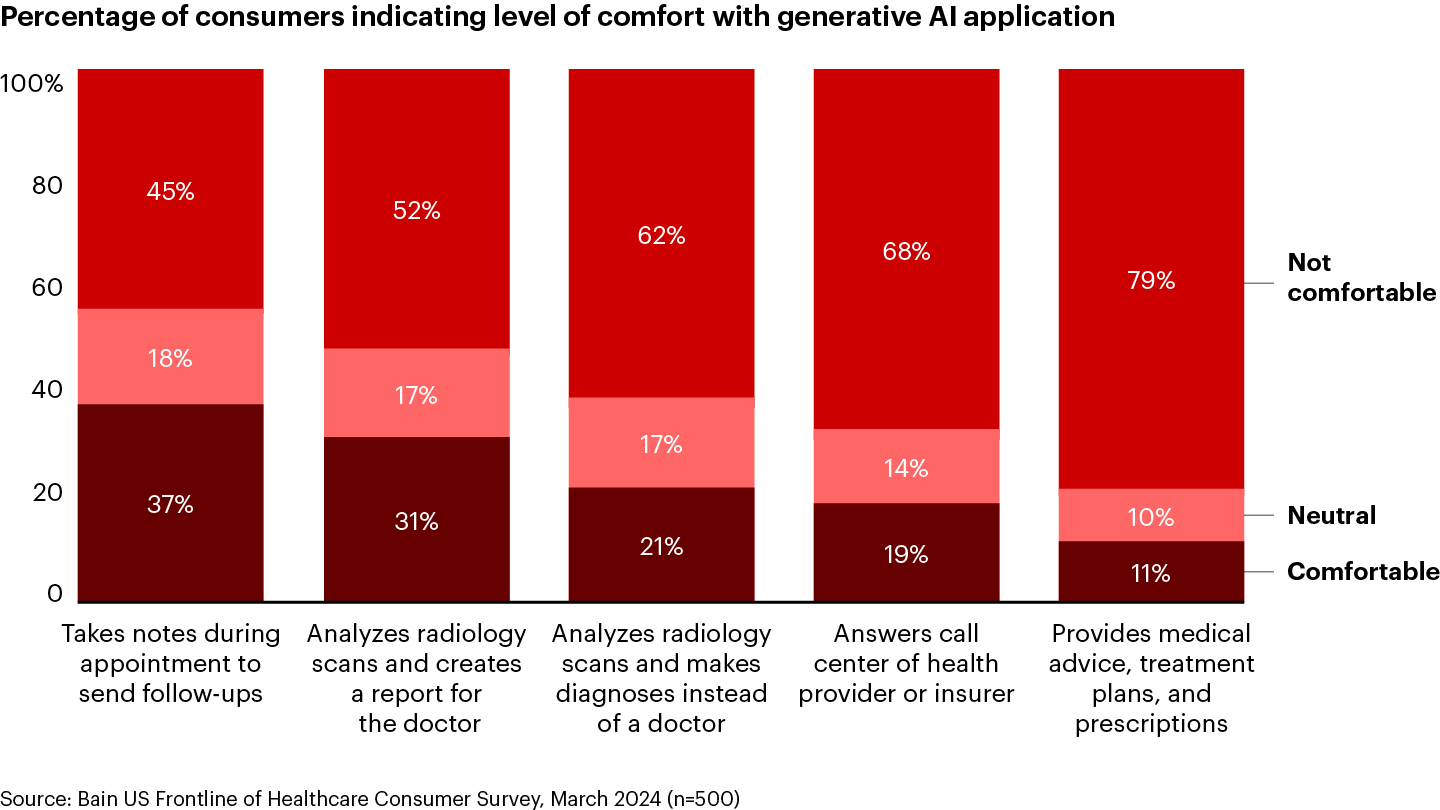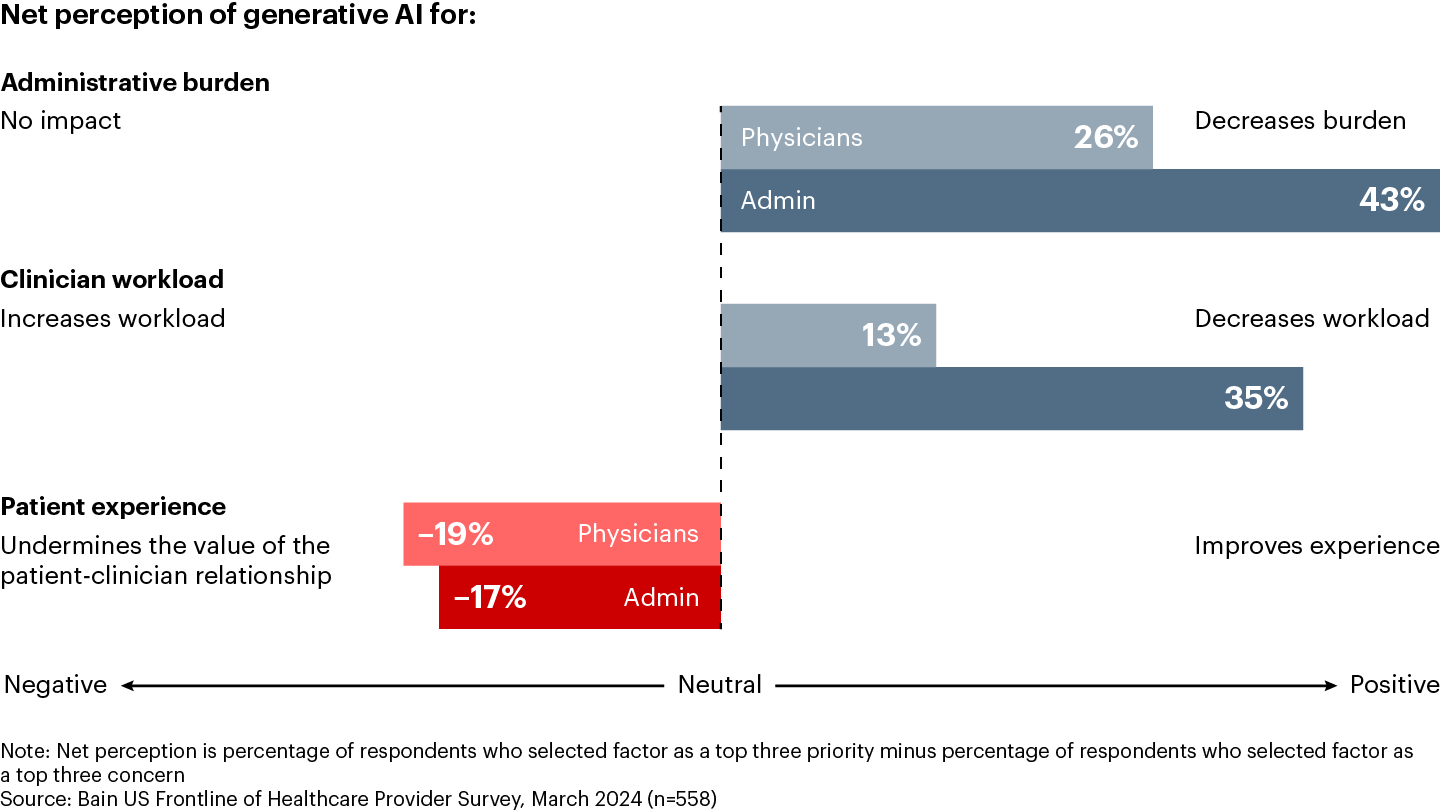Snap Chart




US patients are more comfortable with generative artificial intelligence (AI) analyzing their radiology scan and making a diagnosis than answering the phone at their doctor's office. Yes, you read that right (see Figure 1). But this surprising result from Bain's latest US Frontline of Healthcare survey is likely less a reflection of confidence in generative AI's medical expertise than it is the result of consumer wariness of interacting directly with a new technology.
In fact, consumers are significantly more comfortable with generative AI supporting their doctor than they are interacting with it themselves. And getting the patient experience right early on is critical. Today, only around 48% of US consumers say that they are comfortable with at least one generative AI application in healthcare.
Physicians and administrators feel a similar mix of excitement and apprehension. They generally have a positive view, recognizing generative AI’s potential to alleviate administrative burdens and reduce clinician workloads (see Figure 2). However, they are also concerned that it could undermine the essential patient-clinician relationship.
The fear of technology challenging the patient-clinician relationship isn’t new. We’ve seen it before, quite recently, with telehealth. Despite initial fears, the value of the relationship has prevailed. Today, 61% of patients who use telehealth only do so with their own provider. And both patients and physicians have embraced telehealth as a supplement to, rather than replacement for, in-person visits. Around 76% of physicians and 78% of consumers view it as a complement to in-person care, whereas just 13% and 12%, respectively, view it as a substitute.
The generative AI journey is just getting started, with more than 60% of hospital administrators reporting that their organizations aren’t ready to successfully incorporate generative AI at scale. Those that pull ahead will focus on use cases that strengthen the patient-clinician relationship and not replace the human elements that are vital to delivering effective and compassionate care. These leading providers will include clinicians in strategic decision making from the outset. Clinician involvement will go a long way in addressing both patients’ and clinicians’ concerns and scaling winning applications.

Long Wait Times Outrank Cost as Patients’ Top Frustration. Generative AI Can Help.
Leading providers will embrace innovative solutions to improve the customer experience.